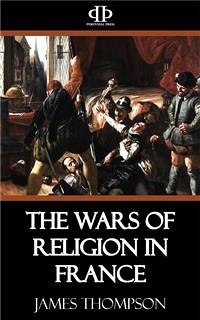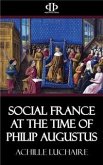The last day of June, 1559, was a gala day in Paris. The marriages of Philip II of Spain with Elizabeth of France, daughter of King Henry II and Catherine de Medici, and that of the French King’s sister, Marguerite with Emanuel Philibert, duke of Savoy, were to be celebrated. But “the torches of joy became funeral tapers” before nightfall, for Henry II was mortally wounded in the tournament given in honor of the occasion. It was the rule that challengers, in this case the King, should run three courses and their opponents one. The third contestant of the King had been Gabriel, sieur de Lorges, better known as the count of Montgomery, captain of the Scotch Guard, a young man, “grand et roidde,” whom Henry rechallenged because his pride was hurt that he had not better kept his seat in the saddle in the first running. Montgomery tried to refuse, but the King silenced his objections with a command and reluctantly Montgomery resumed his place. But this time the Scotch guardsman failed to cast away the trunk of the splintered lance as he should have done at the moment of the shock, and the fatal accident followed. The jagged point crashed through the King’s visor into the right eye. For a minute Henry reeled in his saddle, but by throwing his arms around the neck of his horse, managed to keep his seat. The King’s armor was stripped from him at once and “a splint taken out of good bigness.” He moved neither hand nor foot, and lay as if benumbed or paralyzed,and so was carried to his chamber in the Tournelles, entrance being denied to all save physicians, apothecaries, and those valets-de-chambre who were on duty. None were permitted for a great distance to come near until late in the day, when the duke of Alva, who was to be proxy for his sovereign at the marriage, the duke of Savoy, the prince of Orange, the cardinal of Lorraine, and the constable were admitted...
Bitte wählen Sie Ihr Anliegen aus.
Rechnungen
Retourenschein anfordern
Bestellstatus
Storno









